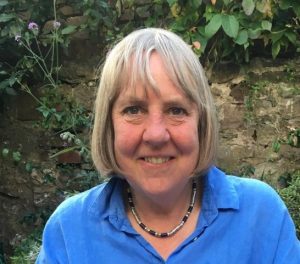Blog by Hannah Davenport @hannah11davñp
We hear from two project workers about the effects of natural disasters for women in Beira, Mozambique and Bristol´s 30-year strong partnership with the city.
Climate change is causing more violent cyclone activity and storm surges on coastlines, greatly affecting places such as Beira, a port city in Mozambique.
Beira was hit by Cyclone Idai in March 2019, causing widespread flooding and destruction.
The low-lying coastal city then faced Cyclone Chalane in December 2020 and was struck by yet another this January, with Cyclone Eloise affecting more than 176,000 people according to the UN.
Bendita E. Mboé, Project Officer at Action for Social Development (ADS) in Beira, comments on the adverse effects this is having on women, as a result of their societal roles and responsibilities.
How women are affected more than men
“It is usually women who guarantee the day-to-day sustenance of the family – working as small traders, as domestic workers and in agriculture. And when the natural disasters come, women immediately lose their livelihood in work that does not provide financial reserves.”
“Traditionally women are carers and do the domestic work, few are decision makers throughout their lives. It is the women who are often alone at home with children when natural disasters happen and have to find shelter for them all.”
“It is the women who are dragged into the waters, trying to save children.”
Bendita referred to the emergency support centres which usually have men appointed to lead the distribution of provisions, and therefore it is their support that women must rely on for survival.
She said this vulnerable position has led to an increase in sexual harassment, sexual violence, HIV and premature weddings.
What women have learnt from previous natural disasters
Women in Beira have gained knowledge from prior disasters and applied this to prioritise actions in preparation for the next severe weather event. Bendita said they have developed contingency plans that are inclusive of different groups such as women, older people and the disable.
She added: “Many groups of women organised themselves in solidarity with each other. Megaphones were used to alert neighbourhoods recently in the approach of both Cyclone Chalane and Cyclone Eloise.”
“As the cyclone approached, many women went to the beach to collect sacks of sand to hold down the roofs of their houses or created ways of storing food and water.”
Bendita added that women and their children should also receive psycho-social support for living through natural disasters. Ultimately, she said the call is for solidarity, for women to be where they want to be regardless of political, ethnic or religious alignment.
“Women want to be the integral part of the destiny of their own lives in all processes.”
Bristol Link with Beira (BLB) is a partnership between the two cities, established after Bristol City Council signed a friendship agreement with the Municipal Council of Beira (CMB) at the end of 1990.
Since then there have been exchanges between council employees, students and teachers and Bristol and Beira have established a strong link through education programmes, cultural events and development work.
Caroline Pitt is Project Lead for BLB, currently the consultant for their BioFactory Waste-to- Energy project and lead of the Programme Development Group.
She commented on the effects the liberation movement from Portugese colonialism had for women in Mozambique.
“Prior to independence from Portugal, many Mozambican men left their families to fight against the Portuguese Army. This left women not only with additional responsibilities, but also opportunities to loosen the traditional patriarchal control.”
“In addition, the liberation front, FRELIMO, actively encouraged young women to take part in the struggle for independence, and in 1975 the newly formed government acknowledged the role of women in official positions.”
“For example Graça Machel was the Minister of Education and Culture, and later became the advisor on Children and Armed Conflict for UNICEF, and is now a UN SDG advocate.”
Caroline said how the continued challenges faced by women in Mozambique are familiar the world over, including their assumed role as carers – which becomes an exacerbated burden with high incidence of HIV/AIDS and malaria, and now COVID.
There are several women’s organisations in Beira with a commitment from the Municipal Council of Beira to promote the integration of women into local governance.
Women’s organisations in Beira
BLB works with the organisation, Amai Mussanhane who now have a building they can let out to create an income that supports women in the community. They also run a pre-school, so that mothers can work. Recently Amai Mussanhane have been taking part in making face masks using sewing machines and materials provided by BLB.
Another organisation, Macuti Health Committee, has members who door-knock to check how people are doing, whilst making recommendations on hygiene, water treatment, mosquito nets, and vaccinations. The older women also hold cooking events sharing recipes and techniques.
BLB is entirely managed by volunteers. For further information (including contacts and a donation link) see their website https://bristolbeiralink.org/, and follow Bristol Link with Beira on social media.
BLB welcomes new volunteers who have appropriate skills, with some specific opportunities described on the UWE career hub. They also have proposed MSc topics for planning students at UWE Department of Geography.
Bendita E. Mboé, Project Officer for ADS (Action for Social Development) NGO in Beira, Mozambique

Caroline Pitt – Project Lead for BLB

